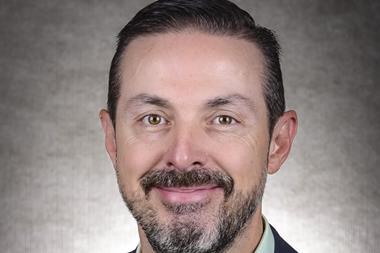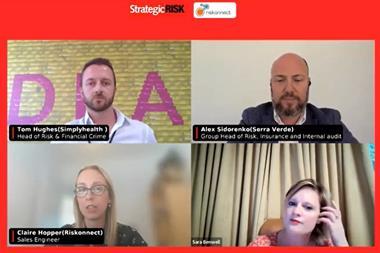Imagine that you are at a very important high level meeting to decide the future strategy of your company. Your top team of 20 people is around the table. None of them earns less than £70,000 a year.
As you look at their faces, consider:
Which of these figures bothers you most? the number of people who would leave, the ones who do not feel valued, the ones who have been bullied? And what effect do you think this has on your ability to create an inspiring long term vision, deliver projects on time and create inspirational role models?
Mind the gap
If you have ever used the London underground, you will know about the gap between platform and train. Many hurrying commuters are so task focused that they fail to attend to other details - like the gap. They fall over, get hurt and complain about the gap - not their lack of attention.
Where is your attention? Is it on your HR policies or on the day to day practicalities? Do you know if there is a gap between what you think is happening and what is really happening to each and every single employee? Your management mantra may be “Our people are our greatest asset”. But a mantra is normally just a sound to help you focus on nothing. You will be judged on what you do.
Returning to your top team - 12 would go if there was a better offer and 6 of them do not feel valued. Could this fact be attributable to a gap between what your company says and what it does?
Partly the gap is due to a corporate message: ‘We value you and appreciate you - just as long as we need you.’ This is emerging loud and clear after several years of downsizing and structural reorganisation. Professionals are newly cynical about corporate life and have strong beliefs about how their careers should be managed. As a result, more and more are going independent and taking responsibility for negotiating their own deals and managing their own development. They go where the work is interesting, the rewards packaged in a way that suits them and, increasingly, where their values are in alignment with those of the companies they choose to work for.
Often these are the very people you need for the big innovative project or the challenging enterprise transformation. So how do you court them and woo them to your side and your cause?
One way to get and keep the right faces for your top team is to use the latest North American executive perk - the executive mentor or personal coach. We are not talking fitness trainers here.
Executive mentoring
Do you ever have days when the following happens?
This is where executive mentoring and coaching come into their own. They recognise that even the best individual can improve, and improve more quickly with direction and focus. Coaches will help you identify what is really important to you and help you get to where you want to be. The key is that you must want to change and be prepared to put in the effort - it is all about getting a better life rather than a better life-style.
You can expect to get honesty, total confidentiality, and commitment from mentoring and coaching. A mentor/coach only has your agenda on the table.
Mentoring or coaching?
Mentoring tends to be more business oriented and based around organisational results. It also tends to be face to face. A lot of coaching can be by telephone. You never need to meet your coach in person unless you want to.
A key difference is that mentors can and will give advice and make suggestions, whereas coaches tend to focus on eliciting the solutions from you (‘we know that you have all the answers, you might just not have realised it yet’).
Both work because they focus on helping individuals to achieve what matters to them. All coaches and mentors believe that people are incredible and have vast resources available. As Thomas A Edison said: “If we did the things we are capable of doing we would astound ourselves.
Coaches and mentors will not make judgments about your choices. If you want to give it all up and live on a desert island, they will help you achieve that. Their business is your success in whatever endeavour you choose, provided it is legal, ethical and moral. Each person is treated uniquely and respected for who they are, not who they should be, or even who they could be.
Individuals who are provided with coaches by their companies feel better, and perform better. A recent article says that coaching has a return on investment of 600% - good value for money. If that does not convince you, how about this? Tiger Woods the golfer has huge natural talent - and he has a coach. Are you better at what you do than Tiger is at playing golf?
How it works
Every coach and mentor has a tool kit of techniques they use, depending on what you want to achieve and the kind of person you are. Programmes are uniquely tailored but will generally cover
Many consulting companies and individuals offer executive mentoring and coaching as well as a raft of other services. Picking is easy. Keep talking to mentors and coaches until you find one that you like and relate to.
Rosie Harrison is a consultant executive mentor and coach. E-mail: roharuk@yahoo.co.uk
SOURCES
Try these books - style is a very personal thing so browse before you buyEffective Coaching, Myles Downey, ISBN 0-75282-108-3Transform Your Life 10 steps to real results, Carole Gaskell, ISBN 0-00-710078-7Coaching for Performance, John Whitmore, ISBN 1-85788-170-2
The statistics in this article were compiled by running together the findings of various recent surveys carried out by the Industrial Society, the Trades Union Congress and the Confederation of British Industry. Useful web sites are: www.indsoc.co.uk (Industrial Society), www.coachingandmentoring.com , www.personalgrowthsystems.com and www.mentoringgroup.com
Merryck and Co, which specialises in CEO mentoring, was recently voted one of the top 100 visionary companies in the UK ( www.merryck.com ). Personal coaches can be found from the Life Coaching Academy which runs training and certification schemes ( www.lifecoachingacademy.co.uk ). The Industrial Society runs training courses and has a register of coaches ( www.indsoc.co.uk ).



















